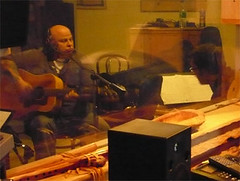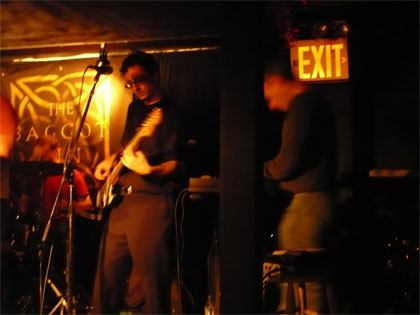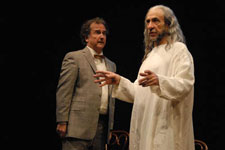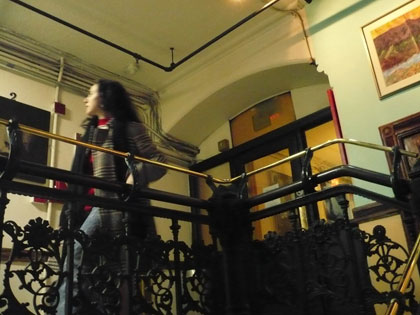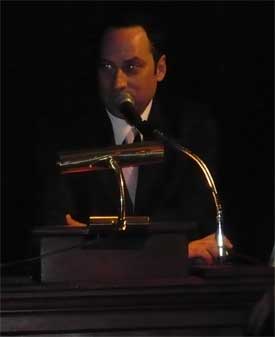We hear a lot of crappy music here at the Indie Round-Up. It's part of the process: we have to pan through a lot of sand to find the nuggets of gold. But before we get to this week's good stuff, bear with us while we explore the musical talents of Ashley Alexandra Dupré, the high-priced call girl at the center of the Eliot Mess.
Though briefly taken down after the scandal exploded, Dupré's MySpace page, with her song, "What We Want," is back up. It links to her Amiestreet.com page where you can – and where, apparently, over two million people did – purchase the song. (A second track has since been added.)
I understand people's prurient interest in listening to Dupré's track at MySpace. I did it myself. But that should be enough to satisfy simple curiosity. For the song to actually sell, wouldn't you think it should be a tiny bit – I don't know – good? But it's not. (Neither is the other song, the embarrassingly titled "Move Ya Body.") It's not "promising." It's not "halfway decent," as one music website called it. It's awful. Not halfheartedly awful, like the lamer work of her idol, Madonna, but MySpace hot babe awful. Tila Tequila awful.
And it's sad. Sad that someone with the troubled background that Dupré describes in her MySpace bio has been allowed to believe that the music she's put out is decent.
Not that it's more awful than some of the other stuff floating around on the Internet. There's always been crappy music, of course, but now that anyone with a computer and some time on their hands can record their crap and make it sound semi-professionally produced, musical "artists" are buzzing around as numerously, and as annoyingly, as locusts.
The whole Spitzer saga is sad, and the sub-story of the call girl with musical ambitions is no exception.
Now, with relief, let's turn to some good music.
Sky Cries Mary, Small Town
Since regrouping in 2004, trance-rockers Sky Cries Mary have been relatively seldom seen on stage, but their new CD Small Town shows the bicoastal sextet in top form. A lovely little acoustic guitar song, "Travel Light," breaks up the sequence of hypnotic wall-of-sound tracks, and the title track itself also features acoustic guitar. The "small town" refers to New York, various areas of which appear throughout the disc, which makes the album something of a portrait of NYC life. Who would have thought a band could make a compelling chorus with just the words "Here comes the 5 Train"? – but SCM could and did. The CD runs out of steam a few tracks before the end, but there is a lot of lush, muscular, feelingly executed, and well-written stuff here. Hear extended samples.
Down the Line, Home Alive
At a far distant point on the pop spectrum from SCM, we find the Chicago acoustic-rock quartet Down the Line, who are equally good at what they do, as this live album demonstrates. Having toured with the likes of Peter Frampton, America, Ben Folds, and Colin Hay, the band's road credentials are unquestionable; the tight musicianship demonstrated here clearly comes from logging a lot of stage time. But the band's two strongest points are their vocals and their songs. Assured and sometimes downright soulful lead vocals and harmonies enliven their catchy and extremely well-crafted songs.
The band is equally at home with smooth pop, like "I Don't Want to Sing" and their cover of "Everybody Wants to Rule the World"; riff-based rock like "Here I Am"; heartland rockers and barroom singalongs like "Martyr," "Dion," and "One Bottle of Bourbon"; a soul-inspired, falsetto-laced song like "Change Your Mind"; and even a well-turned ballad or two, like "A Boy Like Me," and "All Wrong," which brings to mind Clapton's "Old Love." And they do it all without electric guitars, keyboards, or a drum kit. The versatile Dan Myers, who covers harmonica, mandolin, and violin, has a good deal to do with the band's success at this. Besides those instruments, the band comes at us with just acoustic guitar, djembe, and electric bass. I don't often come across a live album worth multiple listens from a band I've never heard before, but this is one. Listen, buy.
